Big Government Crippled the Economy
It seems like everybody is getting a bailout right now. The government is handing out money it doesn’t have left and right. This is all justified because of coronavirus. Even conservatives who normally oppose government bailouts have jumped on the stimulus train. “This is a crisis!” they cry. The government has to step in. But as Peter Schiff explains in his podcast, the government crippled the economy in the first place. A government crutch isn’t the solution to the problem.
Even with 26 million Americans filing for unemployment and unprecedentedly bad economic data starting to come in, stocks have generally moved upward over the last few weeks.
Nobody really cares at this point about the data or how weak it is because they simply attribute it all to the coronavirus. It’s a self-inflicted wound. Forgetting about the fact that we were actually wounded anyway. People don’t appreciate the problems that the US economy had – the very deep-seated structural problems that lay beneath that bubble that people still haven’t come to terms with. They’re still focusing on the effects of the coronavirus and not realizing that the economy was very sick long before we got infected with the coronavirus.”
So what made the economy so sick?
The virus of big government.
The national debt hit $24 trillion just a couple of weeks ago. Now it’s at $24.6 trillion. In other words, the national debt is growing at a pace of $1 trillion a month. Meanwhile, Congress just passed another big stimulus bill.
A lot of people who opposed the bailouts during the 2008 crisis say this time is different. They claim that leading up to ’08, there were a lot of “bad actors” who got bailed out. This time it isn’t anybody’s fault. You can’t blame anybody for the coronavirus. But as Peter pointed out, nobody made people run up all of this debt.
Companies could have been a lot more responsible over the years. They didn’t have to buy back as much stock. They could have kept more cash. The same thing with individuals. They didn’t need to take out mortgages – seconds on their homes and buy new cars every few years and max out their credit cards. People made decisions to live paycheck to paycheck.”
People have to take responsibility for their actions. But ultimately it was the government that made this situation possible. The Fed kept interest rates artificially low to entice people to borrow. They needed Americans to prop up the economy by spending money they didn’t have. High taxes also stress family budgets.
The only way they can make ends meet is through debt.”
This is ironic. Government intervention in the economy sets us up for a crisis like this and then people argue that we need the government because the free market can’t handle a crisis like this. Even people who claim to favor capitalism are pushing for the bailouts. Peter said they are basically just making a case for socialism.
If we’re all going to agree that when bad things happen it’s up to the government to bail everybody out, that nobody is responsible for saving for a rainy day, that we can all live on the edge, and just knowing whenever anything bad happens the government steps in – if we are going to accept that as the new reality, then we also have to accept the new reality that we can’t have socialized losses and private gains. We need to socialize the gains too.”
Peter said if we ever get out of this recession – and that’s a big if – he thinks there will be a big push to raise taxes on corporations and “the rich” because, after all, they got bailed out.
Nobody is talking about higher taxes now because it’s supposedly a recession, but at some point, there is going to have to be a bill, other than inflation where we’re going to be having much, much, higher taxes in order to support a much bigger government that is in a position to bail people out when they get into trouble. But here’s the reality: if it wasn’t for big government, nobody would need big government to bail them out.”
If government wasn’t levying high taxes on corporate earnings, companies would have more money saved to weather a crisis. If people didn’t rely on government programs like Social Security for their savings, they would have money saved on their own.
Everybody would have a lot more savings if we were paying less in taxes and if the Federal Reserve had interest rates at a normal level, if the market was setting interest rates, and not the government, rates would have been much higher over the last generation or two. Well, what would that mean? That would mean fewer people would be borrowing money for consumption and more people would be saving, and their savings would be earning interest. So, not only would they be encouraged to save, but their savings would be compounding because of interest. So, if we had a small government that didn’t tax everybody so much, and we had sound money so that more people saved, the economy would be perfectly positioned and perfectly capable of weathering any economic storm, no matter how bad, without anybody getting a bailout or stimulus check or anything from the government.”
Instead, we have a big government with a powerful central bank that created a bubble economy. It’s built the economy on a mountain of debt. Now, when we hit a downturn, people claim “capitalism doesn’t work.”
It’s the government that crippled the economy in the first place. The solution – the answer to that – is not to have a bigger government crutch so we can hobble around. How about getting rid of all of that government? Liberating the economy from the dead weight of government.”
Peter goes on to explain why the debt time bomb may soon detonate.



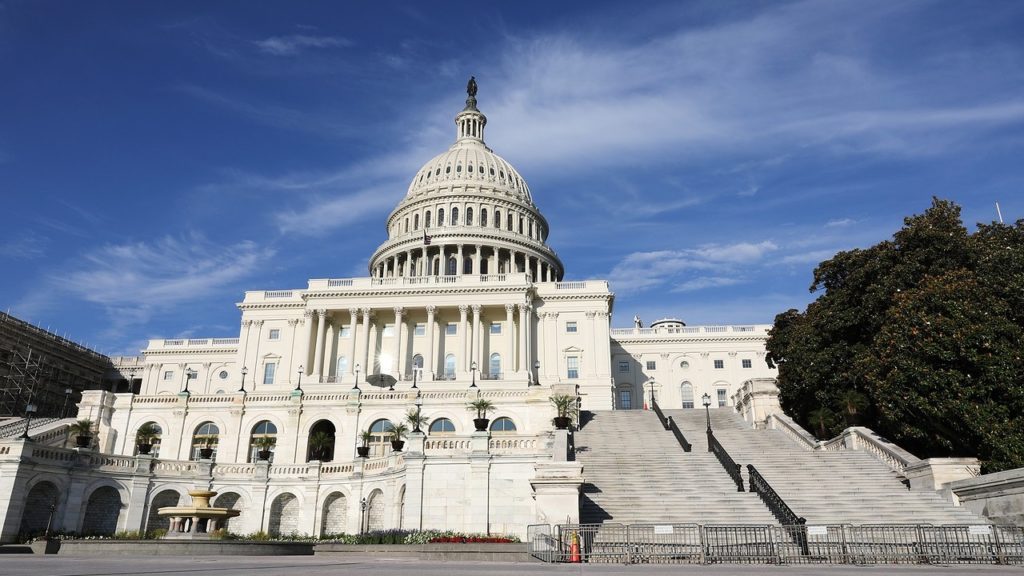

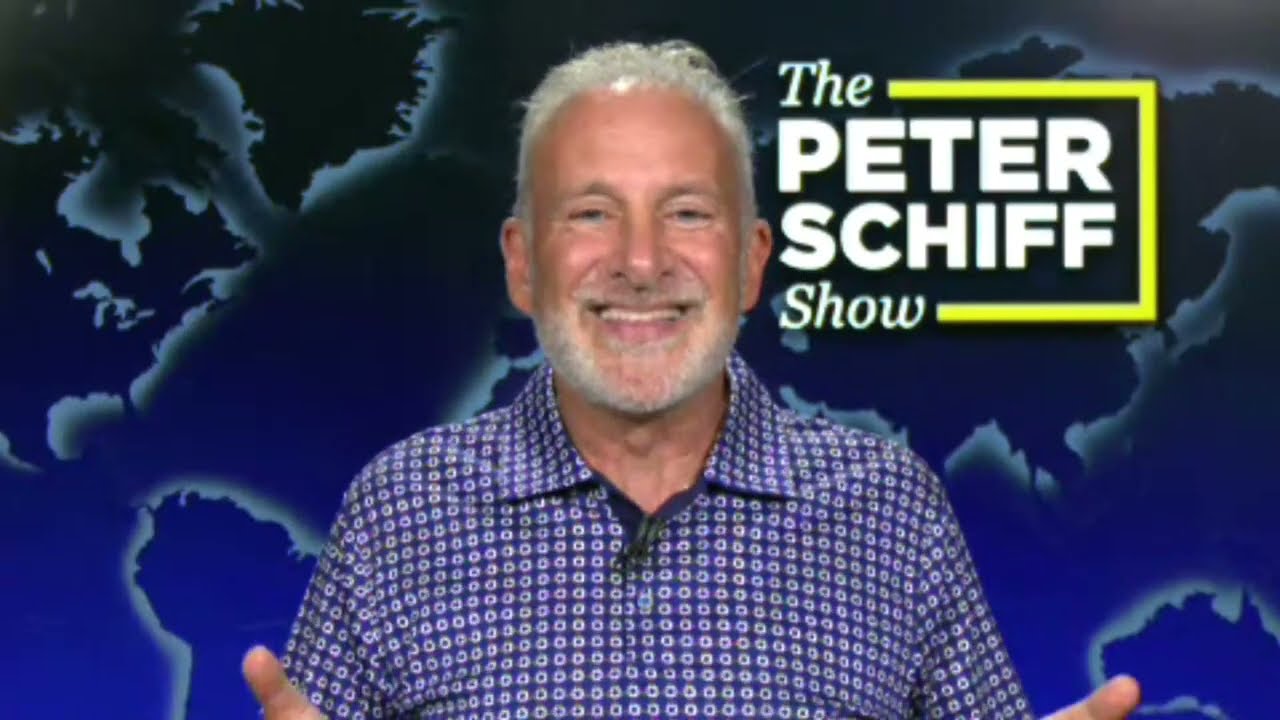 Peter leads off this week with an episode covering last Friday’s stock catastrophe, Bitcoin’s recent performance, and the start of President Trump’s so-called “hush-money” trial.
Peter leads off this week with an episode covering last Friday’s stock catastrophe, Bitcoin’s recent performance, and the start of President Trump’s so-called “hush-money” trial.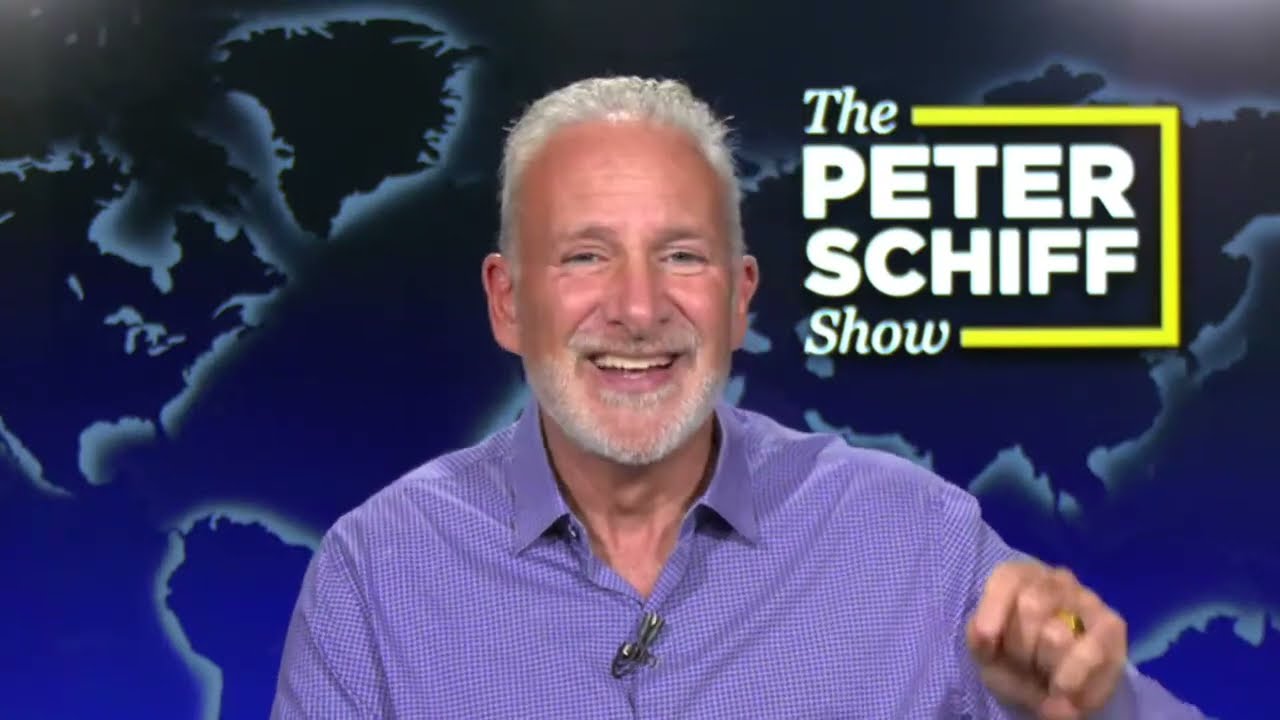 Peter’s back in Puerto Rico this week for his podcast after another week of record gold prices. In this episode, he discusses media coverage of inflation, this week’s CPI report, and Bitcoin’s weakening price relative to gold.
Peter’s back in Puerto Rico this week for his podcast after another week of record gold prices. In this episode, he discusses media coverage of inflation, this week’s CPI report, and Bitcoin’s weakening price relative to gold.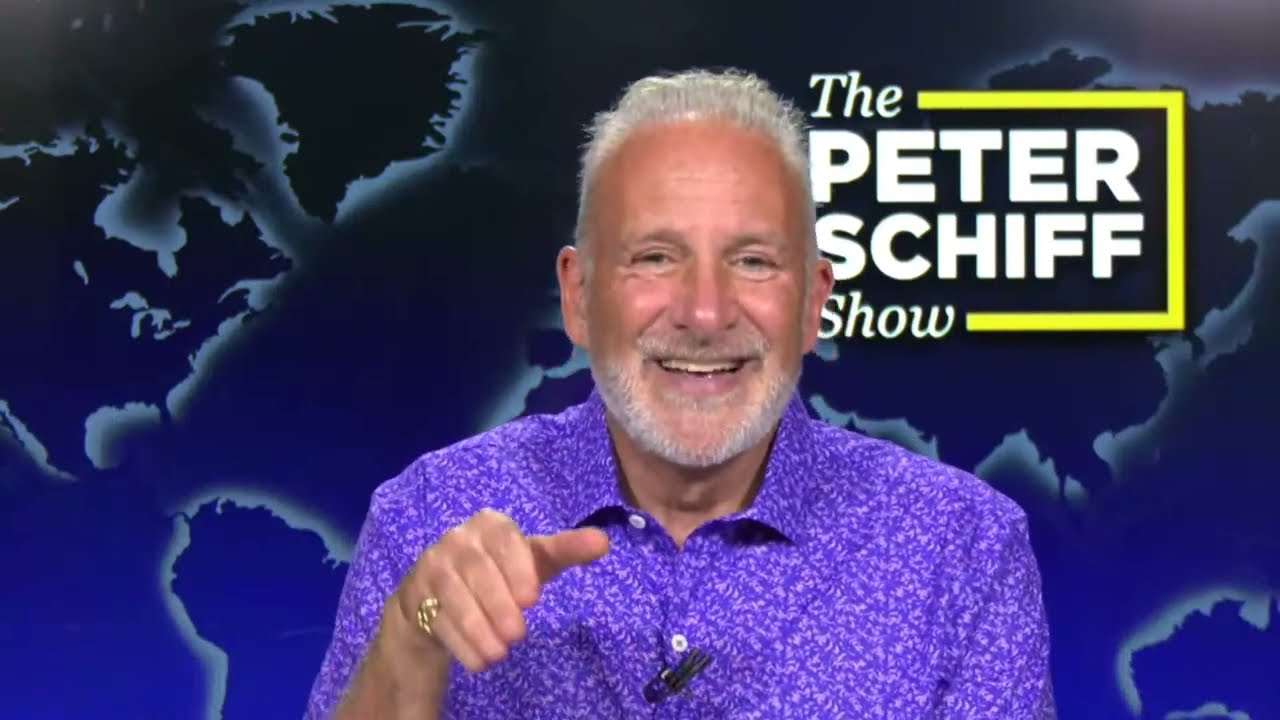 This week Peter recaps another stellar week for precious metal. He also discusses Friday’s jobs report, commodity prices, and Bitcoin.
This week Peter recaps another stellar week for precious metal. He also discusses Friday’s jobs report, commodity prices, and Bitcoin.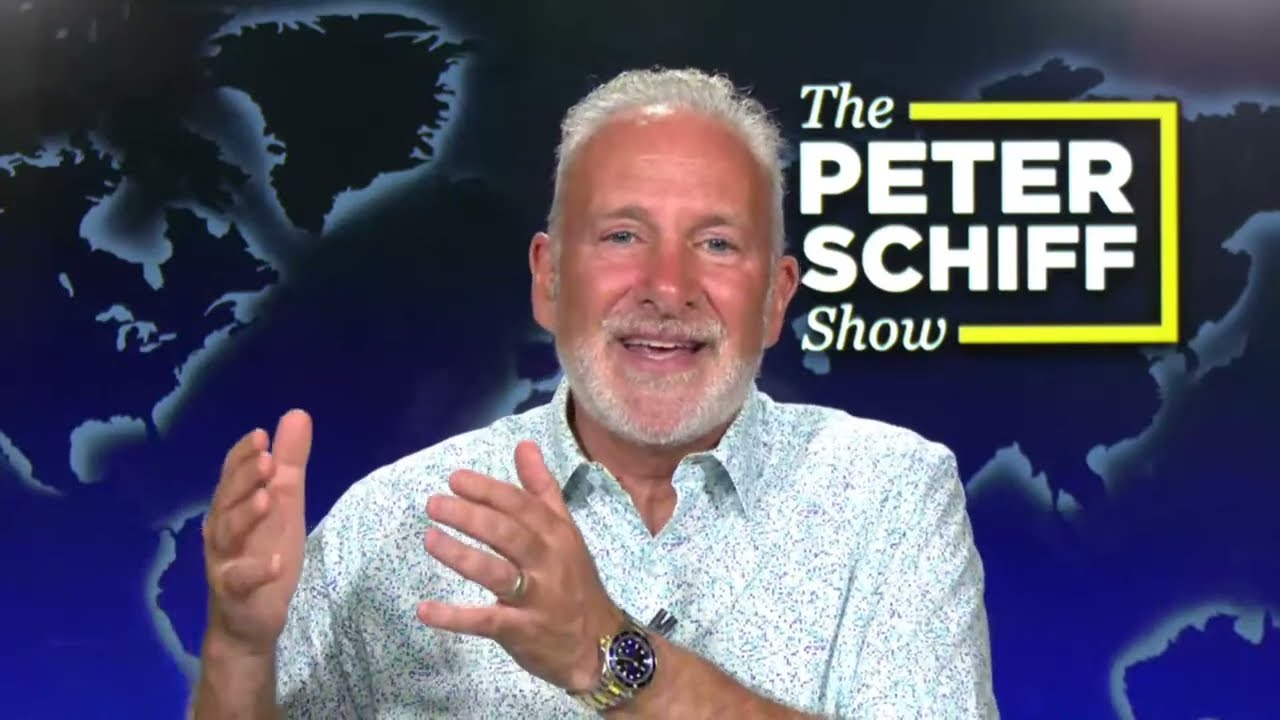 This week Peter returned from vacation, and he was just in time for a surge in the price of gold. He discusses the factors contributing to gold’s record prices, the similarities between today and the 1970s, and data pointing to future inflation in America.
This week Peter returned from vacation, and he was just in time for a surge in the price of gold. He discusses the factors contributing to gold’s record prices, the similarities between today and the 1970s, and data pointing to future inflation in America.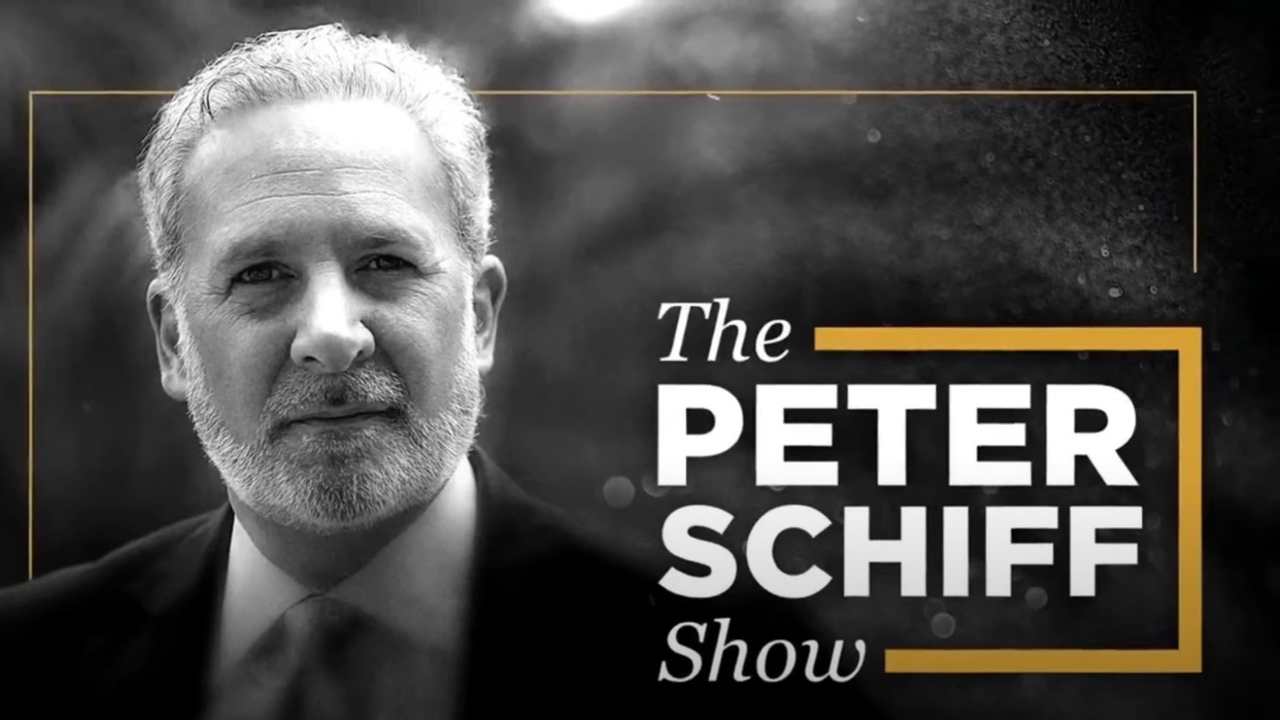 This time Peter tackles Jerome Powell’s speech from Wednesday, in which he announced that the Fed is holding the federal funds rate between 5.25 and 5.5%. He also briefly discusses Bitcoin’s pullback and the media’s lies about Donald Trump.
This time Peter tackles Jerome Powell’s speech from Wednesday, in which he announced that the Fed is holding the federal funds rate between 5.25 and 5.5%. He also briefly discusses Bitcoin’s pullback and the media’s lies about Donald Trump. 